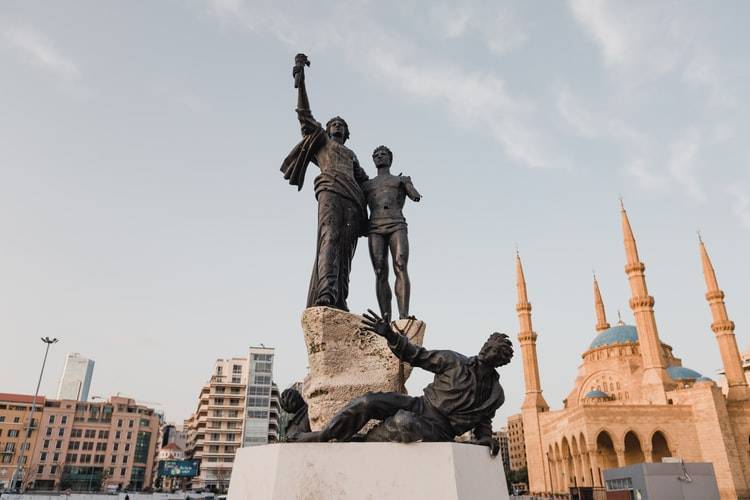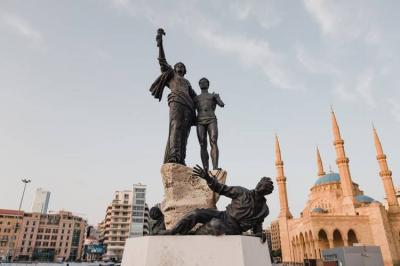During her recent trip to Beirut from Marseille, Lydia did not bring gifts; instead, she filled her luggage with medications costing over 1,000 euros to distribute to family and friends who cannot find any in Lebanese pharmacies. The sixty-year-old woman, who arrived in Beirut last week, stated, "I brought everything: anti-inflammatories, medications for blood pressure, cholesterol, diabetes, Parkinson's, cancer, as well as many anti-depressants."
Lydia reached her home in the town of Babdets, north of Beirut, early in the morning, and just two hours later, visitors began arriving, each eager to receive their medications. Lydia is not alone; her parents also brought medications for 12 people, filling their four bags.
The current crisis has reminded Lydia of the years of the civil war (1975-1990), when expatriates returned loaded with essential goods that had disappeared from the markets. Since the beginning of the year, Lebanese people have been desperately searching for their medications in pharmacies that have gradually run out of stock. Social media users publish daily lists of the medications they need. Many are now relying on friends and family abroad to secure their medications, at much higher prices compared to the subsidized local costs.
In protest of the medication shortages, the pharmacy owners' association began an open general strike last Friday, and the Syndicate of Drug Importers warned of the "exhaustion" of their stock of "hundreds of essential medications for chronic and critical illnesses." This comes after authorities have slowly been rationalizing or lifting subsidies on essential imports, including medications. The delay in opening import credits has led to the unavailability of a large number of medications, including even regular painkillers and infant formula.
The Central Bank of Lebanon has been requesting the Health Ministry for months to set a priority list for the medications that should continue to be subsidized. The Governor of the Central Bank, Riad Salameh, announced that he would cover "the credits and invoices related to medications, especially for chronic and serious illnesses, within an amount not exceeding 400 million dollars" that would also cover "other imports including flour." However, according to the Syndicate of Drug Importers, the portion allocated for medications will not exceed 50 million dollars monthly, which is half of the normal bill.
In light of these complications that increase the suffering of Lebanese people, Paul Najjar and his wife Tracy took advantage of a short vacation to Cyprus to buy medications. The couple, who lost their daughter Alexandra in the Beirut port explosion on August 4, 2020, returned last month with a bag full of medications for their relatives and for people who contacted them via social media. Paul and Tracy bought eye drops, powdered milk, antidepressants, and medications for blood pressure and heart diseases. Tracy recounted, "The pharmacist (in Cyprus) quickly knew we were from Lebanon and told us that two friends had passed by him two days before to buy a ton of medications."
Among the worst three crises in the world
Due to the accelerating economic collapse since the summer of 2019, which the World Bank believes is among the worst three crises globally since 1850, no demographic group has remained untouched by its repercussions. More than half of the Lebanese population now lives below the poverty line, and the Lebanese lira has lost over 90% of its value against the dollar. A large portion of Lebanese people holds the political class responsible for the current economic situation, accusing officials of corruption, waste, and theft of public funds.
Medication shortages accompany the choice of death
For months, Ahmad (58 years old), who suffers from high blood pressure and diabetes, has struggled to find at least one box of medication, making it increasingly impossible. After his medications disappeared from the markets, his doctor prescribed alternative medications, but even those "can no longer be found."
Faced with this reality, Ahmad, who works in a parking lot at a restaurant in Beirut, had to stop taking medications for weeks, but soon experienced severe spikes in blood pressure. He contacted a relative in Istanbul and a friend in the United Arab Emirates, asking them to send him medications with acquaintances coming to Lebanon.
He says, "We are faced with a choice of dying because we can’t find the medications or dying because we have no money left after spending everything on medications purchased from abroad." He adds, "In either case, they are killing us."




